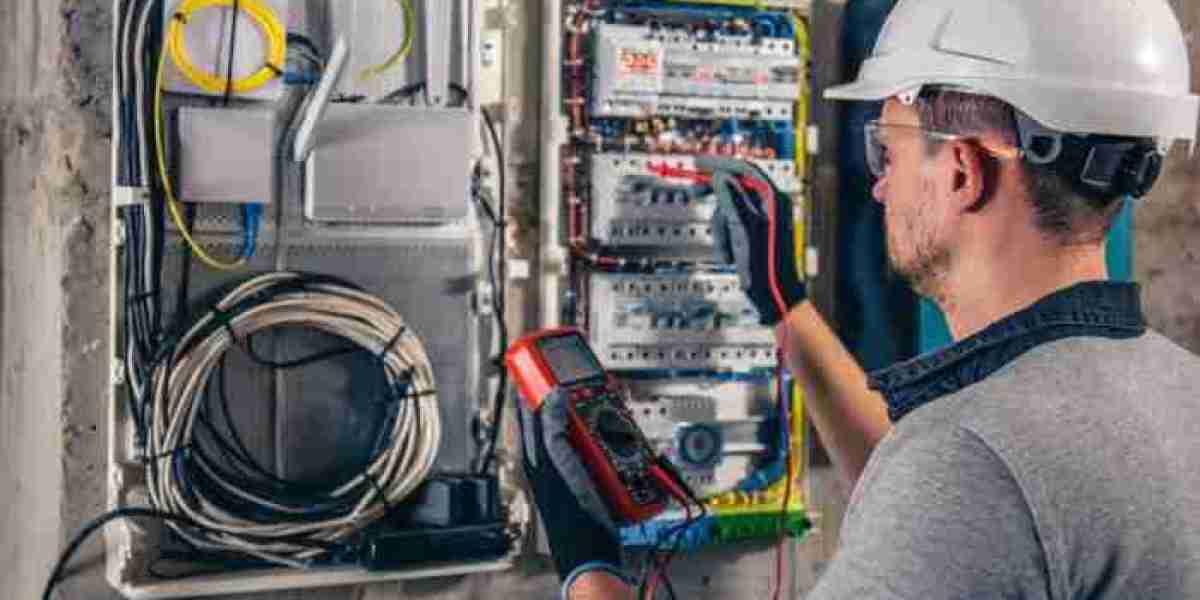Meet Maria, a first-time homeowner in San Antonio. Last summer, she decided to save money by installing a new ceiling fan herself. She followed a YouTube tutorial, wired it up, and flipped the switch—only to hear a loud pop and see sparks fly. The fan crashed down, scorching her hardwood floor. “I thought I did everything right,” she says. “Turns out, I didn’t know about Texas electrical codes.”
Maria’s story isn’t unique. Across Texas, well-meaning homeowners run into trouble because they don’t realize electrical codes exist to protect them. These rules aren’t just for builders or electricians—they’re for you. Whether you’re renovating a ranch in Austin, adding a pool in Dallas, or just swapping out a light fixture in Houston, understanding Texas electrical codes can mean the difference between safety and disaster.
This guide is your neighborly chat over sweet tea. We’ll break down the rules, share real-life stories, and explain why calling Electrical Services Texas is often the smartest move you can make. Let’s dive in!
What Are Texas Electrical Codes? (And Why Should You Care?)
Think of electrical codes like your grandma’s recipe for chili: skip an ingredient, and things go sideways fast. Texas follows the National Electrical Code (NEC) but adds its own twists for our unique needs—like hurricanes, scorching heat, and energy-guzzling AC units.
Why codes matter:
- Safety: Faulty wiring causes over 45,000 U.S. home fires yearly. Codes stop your walls from becoming kindling.
- Insurance: Many companies won’t cover damage from unpermitted work.
- Resale Value: Buyers (and inspectors) will spot shoddy wiring faster than a rattlesnake in a boot.
Key Rules Every Texas Homeowner Should Know
- Wiring: The Hidden Hero (and Villain)
Your home’s wiring is like its bloodstream. Mess with it carelessly, and you’re asking for trouble.
True Story: James in Fort Worth tried wiring his garage himself. He used the wrong gauge wire for his power tools. One day, the circuit overloaded, melting the insulation and starting a small fire. “The fire department said I was lucky,” he admits.
Code Basics:
- Wire Thickness: Heavy appliances (think AC units, ovens) need thick wires. Thin wires = overheating.
- Outdoor Wiring: Texas storms are no joke. Buried cables must be 18+ inches deep and weatherproof.
- Aluminum vs. Copper: Older homes might have aluminum wiring, which can loosen over time. Many insurers require upgrades.
Pro Tip: If your lights flicker when the AC kicks on, call Electrical Services Texas. You might need a dedicated circuit.
- Outlets & Switches: More Than Just Holes in the Wall
Not all outlets are created equal. Texas codes have strict rules to keep your family safe.
Real-Life Lesson: The Hernandez family in El Paso didn’t realize their bathroom outlets weren’t GFCI-protected. After a hair dryer fell into the sink, the entire bathroom lost power. “The GFCI outlet saved my daughter’s life,” Mrs. Hernandez says.
Must-Know Rules:
- GFCI Outlets: Required in kitchens, bathrooms, garages, and near pools. They cut power in milliseconds if water’s involved.
- Tamper-Proof Outlets: Got kids? These prevent tiny fingers (or forks) from getting zapped.
- Height Rules: Outlets must be no higher than 48 inches in garages (so you don’t trip over extension cords).
Fun Fact: Texas requires outlets every 12 feet in living areas. No more daisy-chaining Christmas lights across the room!
- Safety Gadgets: Your Home’s Silent Bodyguards
Modern codes require tech that acts like a guard dog for your wiring.
True Story: After an AFCI breaker detected a smoldering wire behind his TV, retired firefighter Carl in Houston says, “That $50 breaker saved my house—and my cat.”
Key Devices:
- AFCI Breakers: Detect dangerous sparks in wires (required in bedrooms and living rooms).
- Smoke Detectors: Must be hardwired (not just battery-powered) and installed in every bedroom and hallway.
- Whole-Home Surge Protectors: Texas thunderstorms fry electronics fast. These protect your TVs and laptops.
Local Hack: Electrical Services Texas installs combo AFCI/GFCI breakers that cover both fire and shock risks.
- Permits & Inspections: Don’t Skip This Step!
Skipping permits is like driving without insurance—it’s risky and could cost you big later.
The Permit Process Made Simple:
- Apply: Submit plans to your city office (or let Electrical Services Texas handle the paperwork).
- Do the Work: Hire a licensed pro or DIY if allowed (but be honest!).
- Inspection: A city inspector checks everything meets code.
Projects Needing Permits:
- Adding circuits
- Installing a backup generator
- Rewiring a room
Nightmare Scenario: Linda in Corpus Christi sold her home, only to have the sale fall through because her DIY electrical work wasn’t permitted. “I lost $10k on the deal,” she says.
- DIY Limits: Know When to Call the Pros
Texas lets homeowners do minor work, but some jobs are like open-heart surgery—leave them to experts.
OK for DIY:
- Replacing light fixtures
- Installing smart doorbells
- Swapping outlet covers
Leave to Licensed Pros (Like Electrical Services Texas):
- Upgrading breaker panels
- Wiring hot tubs or pools
- Installing solar panels
Why Risk It?:
- Insurance Void: Most policies won’t cover DIY disasters.
- Invisible Dangers: Even if it seems to work, faulty wiring can smolder for years.
Confession: “I tried replacing my breaker panel,” says Mark in Lubbock. “I shocked myself twice and ended up paying double to fix my mistakes.”
- Energy Efficiency: Save Money, Save the Planet
Texas codes push for greener homes (and lower bills!).
Success Story: The Nguyen family in Plano cut their energy bill by 30% after upgrading to code-compliant insulation and LED lights. “Our AC doesn’t run 24/7 anymore,” says Mr. Nguyen.
Key Rules:
- LED Lighting: New homes must use energy-efficient bulbs.
- Insulation: Properly insulated wiring reduces energy waste.
- Solar Panels: Must connect safely to the grid (no DIY setups!).
Pro Tip: Electrical Services Texas offers free energy audits to spot code violations and savings opportunities.
How to Stay Safe (Without Losing Sleep)
- Label Your Breaker Box: Use a label maker or tape. Know which switch controls the garage vs. the kitchen.
- Test GFCI Outlets Monthly: Press the “test” button. If it doesn’t trip, replace it ASAP.
- Avoid Octopus Outlets: Plugging 3+ devices into one outlet? You’re playing with fire (literally).
When to Call for Backup:
- Flickering lights
- Buzzing outlets
- Breakers that trip constantly
Electrical Services Texas has 24/7 emergency lines. As tech Mike says, “We’d rather fix a small problem tonight than a house fire tomorrow.”
Conclusion: Better Safe Than “Sorry Y’all”
Texas electrical codes aren’t about red tape—they’re about keeping your family safe in a state where weather, critters, and DIY ambitions can turn deadly. Whether you’re in a historic Galveston cottage or a new McMansion in Frisco, these rules apply to you.
And remember: Electrical Services Texas isn’t just a company—it’s your partner. Their teams are locals who’ve seen it all: flooded outlets after hurricanes, squirrel-chewed wires in attics, and yes, even ceiling fans that crash-landed in living rooms. They’ll handle permits, inspections, and that scary tangle of wires behind your fridge.
So next time you’re tempted to “YouTube it,” ask yourself: Is saving $200 worth risking my home—or my life? When in doubt, call the pros. After all, in Texas, we take care of our own.




